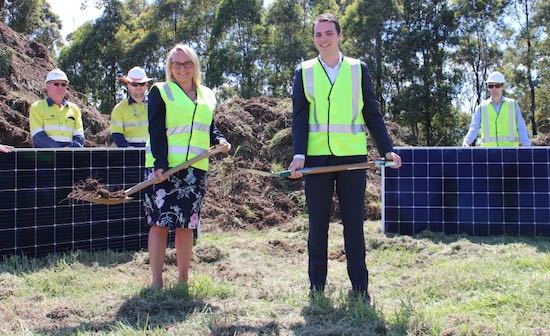
The New South Wales coal city of Newcastle is zeroing in on plans to take local government operations 100 per cent renewable, after a study showed the move would deliver millions of dollars in savings.
The City said on Tuesday that a feasibility study it commissioned earlier in the year had estimated cost savings of between $3.8 million and $4.8 million to ratepayers by sourcing all of its power either directly, or via a retailer, from renewable sources.
The feasibility report had also found that market volatility and structural changes meant traditional electricity contracts of between one and three years were “no longer a low-risk approach.”
And Councillors are said to have approved a staff recommendation to “move to 100% renewable electricity supply for operations from 2020, subject to confirmation of cost effectiveness.”
Newcastle Lord Mayor Nuatali Nelmes said now was the right time for the City – best known for hosting one of the world’s largest coal ports – to shift away from fossil fuels, with Council’s current electricity contracts due to expire at the end of the year.
“It’s City of Newcastle’s aim to be a leader in renewable energy as part of our strategy to be a global smart city,” Nelmes said.
“Our City is well positioned to take the next step towards achieving a 100 per cent renewable electricity target.
“Around 70 per cent of the respondents to our Winter Community Survey supported the City moving towards a 100 per cent renewable energy target, which sends us a strong message.”
Nelmes noted that the City had already installed around 500kW of rooftop solar and was using this to power 10 local government sites, including the Newcastle Museum.
An additional 5MW will soon be made available via a solar farm being built at the Summerhill Waste Management Centre – formerly the site of a coal mine – on which construction began in November of last year.
As we reported here, the Summerhill Solar Farm will join a 2.2MW landfill gas generator and a small wind turbine already installed at the waste facility.
“Combined, this will provide for between 50-65 per cent of the City’s renewable electricity supply, which puts us on track to meet the 100 per cent goal we’re aiming towards,” Nuatali said.
The plan is not quite official yet, though. With contracts for the supply of electricity for large sites, street lighting and small sites expiring on December 31, the recommendation is that the City enter into a long-term agreement to source 100 per cent renewable electricity supply.
Stay tuned.

Sophie is editor of One Step Off The Grid and deputy editor of its sister site, Renew Economy. Sophie has been writing about clean energy for more than a decade.



